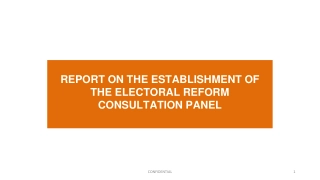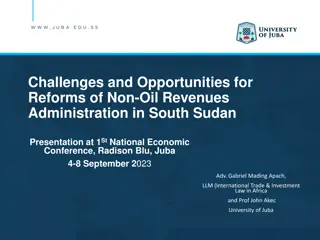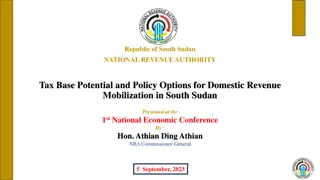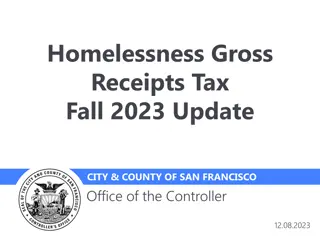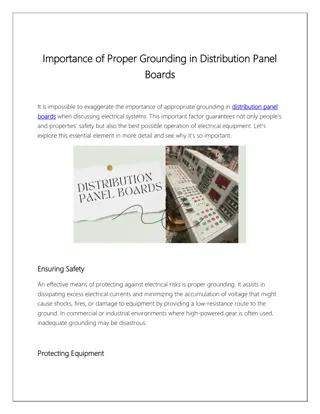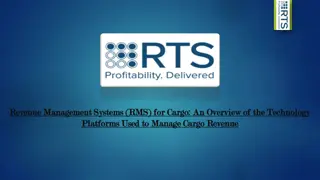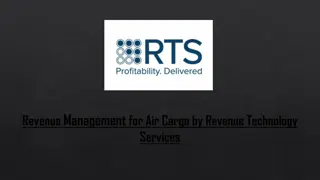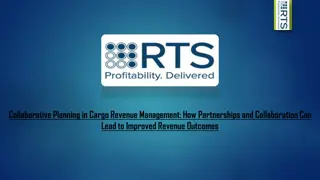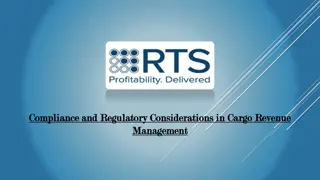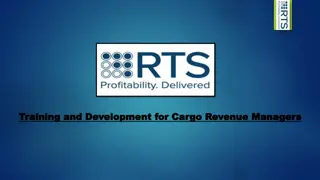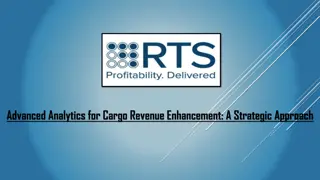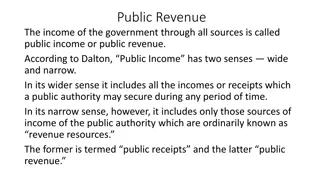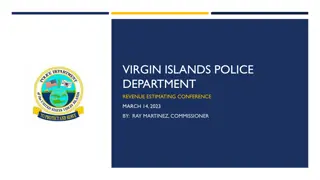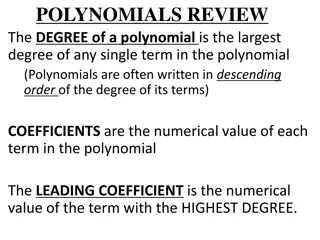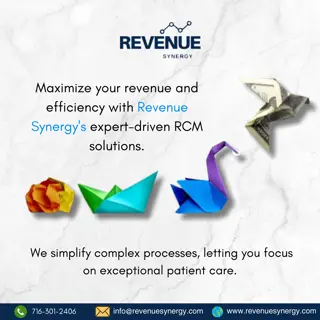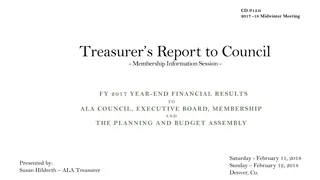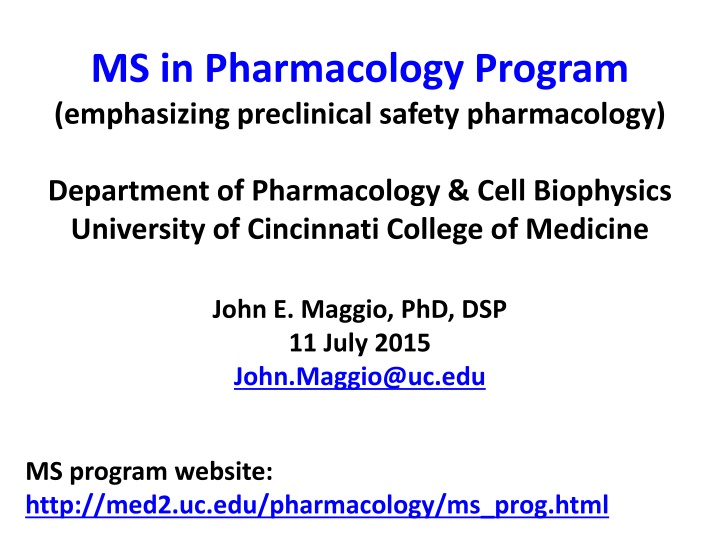
MS in Pharmacology Program at University of Cincinnati College of Medicine
Explore the MS in Pharmacology Program at the University of Cincinnati College of Medicine, focusing on preclinical safety pharmacology. Learn about the program's background, goals, curriculum, and the demographics of entering students. Discover how this one-year, non-thesis, on-site MS degree program can prepare you for a career in pharmacology and drug discovery.
Uploaded on | 2 Views
Download Presentation

Please find below an Image/Link to download the presentation.
The content on the website is provided AS IS for your information and personal use only. It may not be sold, licensed, or shared on other websites without obtaining consent from the author. If you encounter any issues during the download, it is possible that the publisher has removed the file from their server.
You are allowed to download the files provided on this website for personal or commercial use, subject to the condition that they are used lawfully. All files are the property of their respective owners.
The content on the website is provided AS IS for your information and personal use only. It may not be sold, licensed, or shared on other websites without obtaining consent from the author.
E N D
Presentation Transcript
MS in Pharmacology Program (emphasizing preclinical safety pharmacology) Department of Pharmacology & Cell Biophysics University of Cincinnati College of Medicine John E. Maggio, PhD, DSP 11 July 2015 John.Maggio@uc.edu MS program website: http://med2.uc.edu/pharmacology/ms_prog.html
Background UC Pharmacology s PhD program trains about 4-5 students/year. This number has been flat for 15 years. Before 2012, UC Pharmacology had never offered an MS degree program. [MS degrees were awarded rarely to students who failed to complete PhD work.] The Pharmacology PhD program sends more graduates to academia/PDs than to other careers. University and College support for PhD student stipends and tuition declined after about 2010. University and College support for COM basic science departments declined after about 2005.
MSSP* Degree Program, launched 2012 *MSSP = Master of Science in Molecular, Cellular and Biochemical Pharmacology with Emphasis on Preclinical Safety Pharmacology A one-year, non-thesis, on-site, terminal MS degree program Goals: Provide graduates with contemporary skills and knowledge in pharmacology and preclinical drug discovery & development Prepare graduates for careers in pharma and contract research organizations Prepare graduates for further education in PhD or MD programs Generate income for Pharmacology department (and College and University)
Curriculum Requires 30 cr-hrs (graduate semester credit hours) Required Courses (25 cr-hr): Pharmacological Principles & Receptors*, Preclinical GLP, Drug Discovery & Development, Principles of Safety Pharmacology, Laboratory Rotation*, Seminar*, Preclinical Toxicology, Advanced Safety Pharmacology, Systems Pharmacology*, Ethics in Research*, Experimental Methods in Safety Pharmacology. *Also required for PhD students Elective Courses ( 5 cr-hr) chosen from: Molecular & Cellular Biology, Molecular Pharmacology, Human Physiology, Biochemistry & Cell Signalling, Experimental Design, Statistics, Principles of Clinical Pharmacology, etc.
Demographics of Entering Students (N=29*) Gender: 72% female, 28% male Age: 22 yo 34 yo National Origin: 62% US, 38% International Undergraduate Institutions: 76% US, 24% International US Students from: University of Cincinnati (17%), Other Ohio (14%), Midwest US (55%), Other US (21%) Previous Degrees in: Chemistry (24%), Biochemistry (21%), Pharmacy (9%), Pharmacology (6%), Othera (18%). GRE Composite Score: 306 9 (58th %ile) GPA: 3.47 0.35 * First three classes, combined a Other: Biotechnology, Health & Humanities, Psychology, Law, Music
Demographics of MS Graduates (N=19*) Graduation Rate: 100% Further Education: 40% Of these: 50% MD, 40% PhD, 10% MS Four MSSP grads went on to our PhD program Academic Sector Employment: 15% Private Sector Employment: 35% Other/Unknown: 10% Pharma/CROs: 0% * First two classes, combined
Financials MSSP Program Tuition (2014-15): $24640 (OH Residents) $25480 (Others) Individual Courses: $1232/cr-hr Class Size: 12-15 Gross Tuition Income: $300K/yr Income Split*: 50% University 5% College of Medicine 45% Pharmacology Department * Income split at program launch was 60% to department. [ Downward Negotiation ]
MSSP Program Future Plans Significant expansion of onsite program will exceed classroom capacity. Launch an online Certificate in Safety Pharmacology program (12 cr-hr) using existing courses. Create new courses (i.e., modify existing courses) for online presentation. [University must settle on a platform and approve online courses.] Launch a PSM program (longer term, requires several new courses).
Acknowledgements Faculty of the UCCOM Department of Pharmacology & Cell Biophysics Dean s Office, University of Cincinnati College of Medicine University of Cincinnati Faculty Development Council Dr. M. Abdul Matlib (Founder and Program Director, Emeritus) Nancy Thyberg, Program Manager
Acknowledgements External Advisory Committee: Phil Atterson (WIL Research) Bob Hamlin (OSU and QTest) Craig Hassler (Battelle) Mary Jeanne Kallman (Covance) Derek Leishman (Lilly) Scott Mittelstadt (AbbVie).

